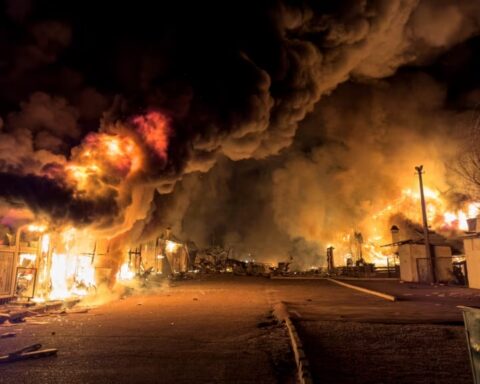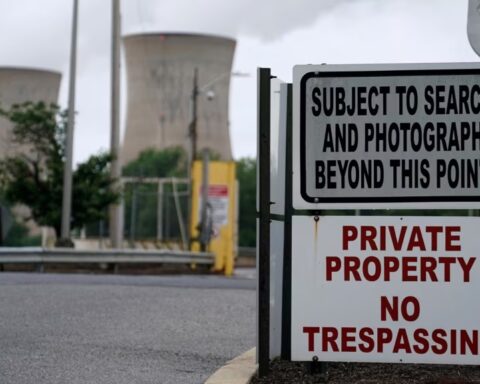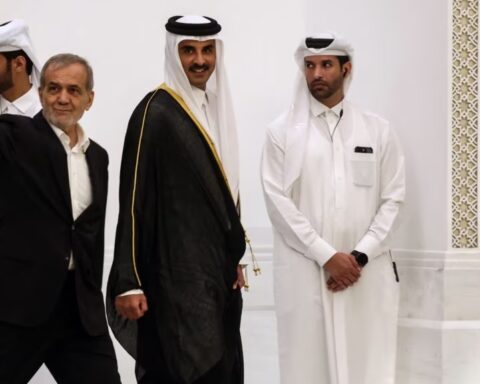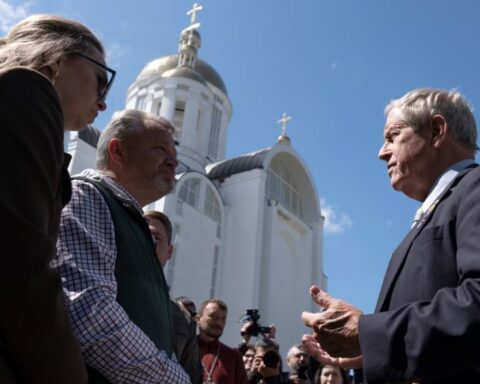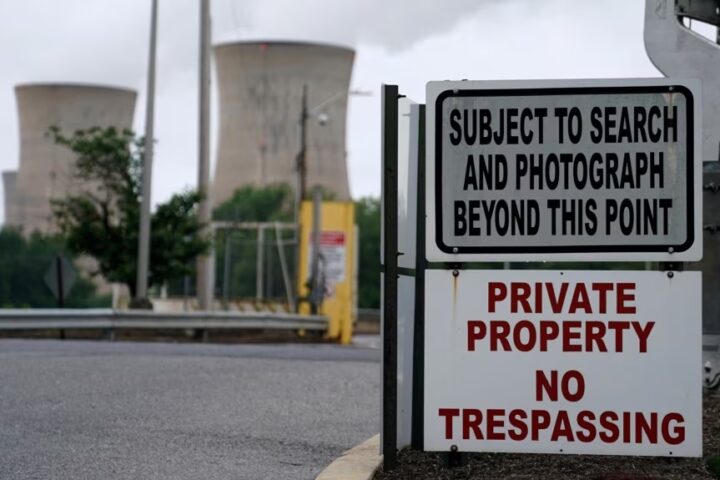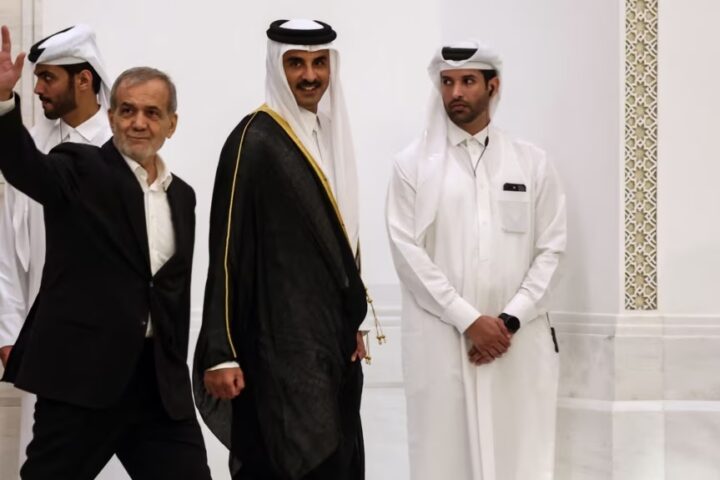QUESTION: Mr. Blinken, thank you for this interview and welcome to Peru.
SECRETARY BLINKEN: Great to be with you, especially here.
QUESTION: Yeah, especially here. Peru hosts this year’s OAS General Assembly in a region so hard hit economically by the pandemic and with such extreme political polarization. What do you expect of this meeting?
SECRETARY BLINKEN: We’ve already had a very good meeting with the OAS, the Organization of American States. It’s the first time that we’ve come together in person since 2019 because of COVID, and the focus of the meetings that we had was on how we build more inclusive economic growth that brings everyone in, and how we do a better job focusing on equity across the hemisphere. And I think we’ve heard commitments from countries to do that and work on that together, and I come away, even with all the challenges we face as a hemisphere – from climate, from migration, from COVID, from economic disruption, the food crisis all of that – the challenges are real, but a determination to work together is also real.

QUESTION: It is not just any political polarization. As a consequence, Latin America now is led by governments such Petro, Lula, Fernandez, Boric, Maduro, Castillo. Is the U.S. concerned about the so called pink tide in our region?
SECRETARY BLINKEN: I don’t see it that way at all. In fact, I just came from Colombia, Chile, now here in Peru. We don’t work with governments from the perspective of are they from the left, are they from the right, are they from the center. What we’re looking at is whether governments are adhering to basic democratic principles, the principles that are in the charter of the OAS, in the Inter-American Democratic Charter. That’s what counts. And so it doesn’t matter what the political orientation is. What matters is adherence to democracy and a commitment to work together, because what we know, what we understand is that none of the problems that our citizens face – in the United States, throughout our hemisphere – can be effectively solved by any one of our countries acting alone. We have to find ways to cooperate, to coordinate, and we’re doing that, and I found that spirit in Colombia, I found it in Chile, and I found it in Peru.
QUESTION: This is complicated, but Brazil, Mexico, and Argentina are not among the 24 countries in the meeting that signed a declaration of support for Ukraine over the Russian invasion, and rejection of Moscow. Big question (inaudible) during the annual meeting of the OAS in Lima. What is happening in the region for the U.S. Government about the invasion of Ukraine?
SECRETARY BLINKEN: Well, first it’s important to understand why this matters, because I know for people in our own hemisphere it seems to be halfway around the world. But it’s not just an aggression against Ukraine – it’s an aggression against the basic principles of international relations that were established in the United Nations Charter, the Universal Declaration of Human Rights. And those principles – for example, countries have the right to maintain their independence, their sovereignty, the integrity of their territory – if those principles are violated with impunity, then that risks of opening Pandora’s box everywhere in the world, where big countries will bully small countries, where might makes right, where we have a law of the jungle, not international law that keeps the peace and keeps security. That’s why it’s important.
But here’s what’s important, too. Even as we’re standing up against the aggression by Russia, we’re also working every single day on issues that also matter here in our hemisphere: on combating climate change, on dealing with food insecurity, on producing economic growth that’s more inclusive, on dealing with crime, narcotrafficking, all of these things. We can and we have to, as we would say, run and chew gum at the same time. We’re doing all of it.
QUESTION: But Peru is also a country facing, I believe, a crisis that has shaken President Castillo’s government. We know you have a meet – him. What do you think about him?
SECRETARY BLINKEN: I’m not, of course, going to comment on anything concerning the politics of any country.
QUESTION: I understand.
SECRETARY BLINKEN: I don’t do politics in my own country, happily. But I can tell you that I had a very good meeting with President Castillo. I very much appreciated not only the time, but the quality of the conversation. And what we focused on were really issues that are having an impact on the lives both of Peruvians and Americans. For example, Peru has been incredibly generous in hosting so many migrants and refugees from Venezuela because of the crisis there. But it also poses a burden for Peru.
We – I announced a program yesterday, working with our U.S. Agency for International Development, of about $286 million to help Peru in the work that it’s doing to support Venezuelan migrants, including host communities. We talked about the work that we were doing together on climate change. Peru is leader in combatting climate change, but here again, working with the United States, there are programs that we have to help Peru pursue adaptations and build resilience to adopt some of the new technologies. We talked about health care and the need to have more health care for people not just here in Lima, but all around the country.
Well, at the Summit of the Americas just a couple of months ago, where Peru and President Castillo were very much present, we announced a program to train 500,000 health care workers for the hemisphere over the next five years. That will extend health benefit services throughout the country and raise the quality of health care. These are the kinds of things we talked about.
QUESTION: Now moving to another topic, please. It seems 2012, Peru has expressed its intention to join the OECD. However, Peru is living a paradox. In fact, since analysts speak of the Peruvian paradox – a surviving economy, and five presidents in the last four years, corruption that corrupts the political system, education without gender equality, and people who may not trust in their public institutions. Does Peru have a chance to join the OECD for you?
SECRETARY BLINKEN: Well, of course I believe it does, but it’s a process with important criteria to meet and it takes times. But it’s important because it, I think, can support the positive evolution of Peru’s economy in ways that are inclusive, that bring everyone in. And some of the work that we’re doing together to support that and – but we’ve seen tremendous progress in our economic relationship with over the last decade.
We have a free trade agreement that also upholds the rights of working people and respects the environment. We’ve seen trade between us go up 140 percent over the last decade. That’s very positive. That actually – that creates jobs in both of our countries. We believe that we can grow that, but the challenge of corruption is real. It’s a challenge that we see around the world. It’s very corrosive to democracy. We’re working together on that; for example, helping to train judges, law enforcement, lawyers to deal with that. But throughout – here’s the bottom line: all of our democracies, the number-one challenge for us is to demonstrate that we can deliver results for our people.
And if we’re able to do that, whether that’s on education, whether that’s on health care, whether it’s dealing with climate change, whether it is making sure that rural communities are part of growth – if we succeed in doing that, then I think you’ll see support for democracy, for institutions. If we don’t succeed, then we’ve got a bigger problem.
QUESTION: Thank you very much, Mr. Blinken.
SECRETARY BLINKEN: Thank you.
QUESTION: Nice to meet you.
SECRETARY BLINKEN: Good to be with you. Thank you.


